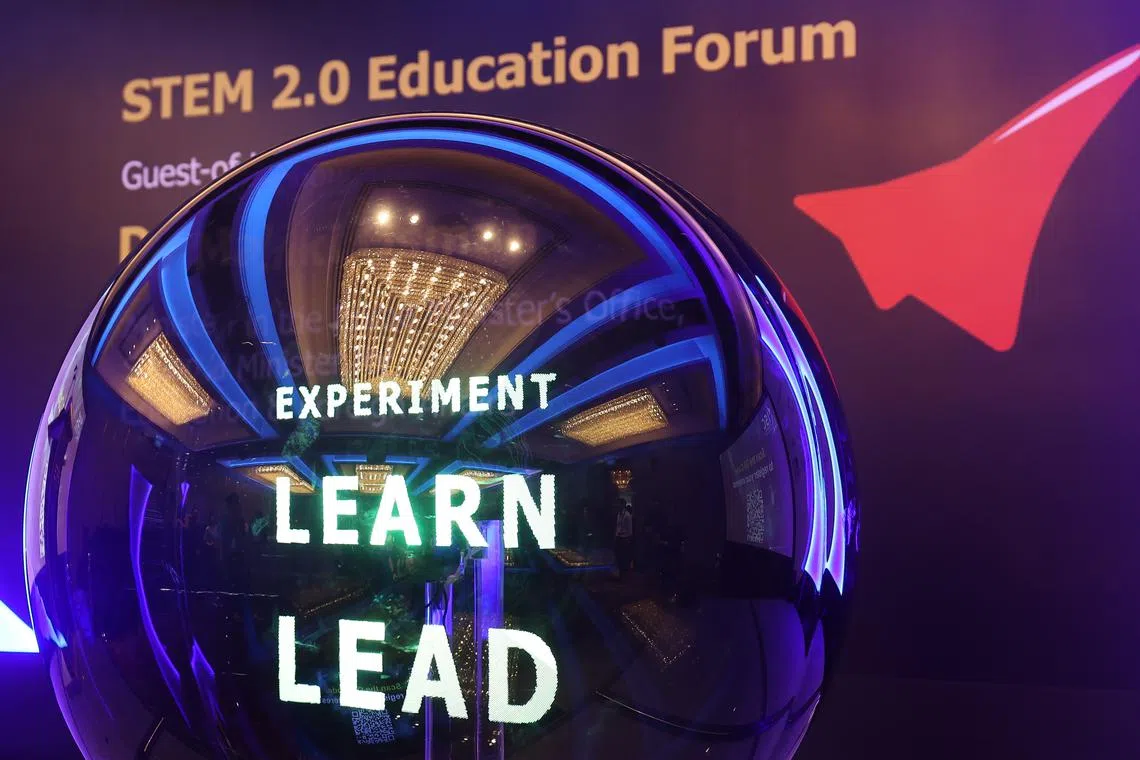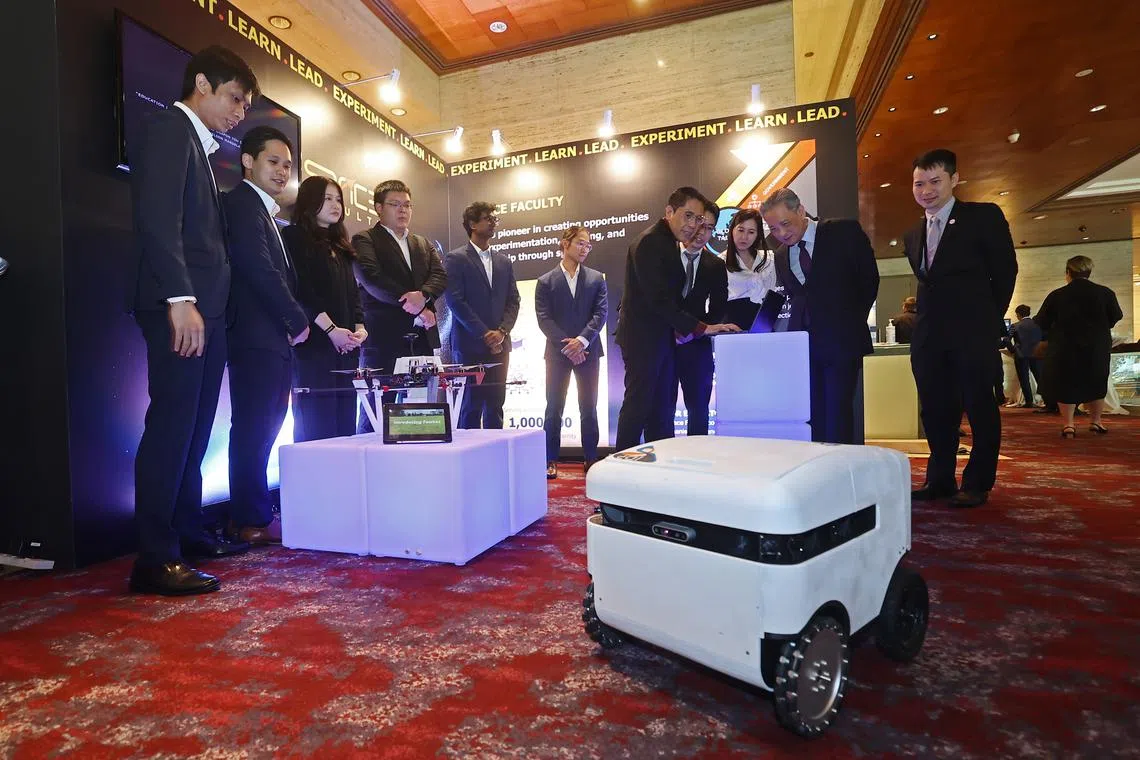New space sector internship for students aged 17 and up
Sign up now: Get ST's newsletters delivered to your inbox

The new Space Internship Programme was launched on Thursday at a Stem education forum at the Global Space and Technology Convention.
PHOTO: LIANHE ZAOBAO
SINGAPORE - Tertiary students who aspire to build satellites or work on geospatial technologies will have the opportunity to do so with the launch of an internship programme in the space sector here.
The new Space Internship Programme will expose those aged 17 and above to space-related companies, with the aim of building up talent in the industry and helping students hone relevant skills in science, technology, engineering and mathematics (Stem) fields.
Launched on Thursday at a Stem education forum at the Global Space and Technology Convention, held at Sheraton Towers Singapore, the initiative is led by Space Faculty, the education arm of local organisation Singapore Space and Technology (SSTL), and national space office, the Office for Space Technology and Industry.
From now till 2026, there will be at least 95 internship openings across space-tech firms here and abroad.
Companies offering internships include the Singapore Land Authority (SLA) and Bangalore-based GalaxEye Space, a start-up that aims to build commercial and multisensor earth observation satellites.
Each stint will last between three and six months, and students can apply for them during school holidays or while waiting to enter university, said Ms Lynette Tan, chief executive of SSTL and Space Faculty.
There is no age limit for applicants, she added, and those looking for a mid-career switch can also apply on Space Faculty’s website
Applicants will be screened by Space Faculty before they are recommended to suitable companies, which will then interview them.
Singapore’s space sector comprises about 2,000 professionals and researchers, and more than 60 local and international companies.
Ms Tan said there is a need to expose learners to Stem-related jobs early, as the demand for talent in this space has increased while the bar has been set higher.
The internship programme is not limited to just mathematics and engineering students.
“We are more particular about whether applicants show the willingness to learn. We want a range of students from life sciences, biology... You don’t have to be an aerospace engineering student to be in this sector,” she said.
“Some students might be learning history, but they may also be interested in space. They might also be good in basic maths and science. Just because they’ve chosen to major in history does not preclude them from exploring other options.”

Second Minister for Education Maliki Osman operating a prototype rover built by an NUS team, at the Global Space and Technology Convention.
PHOTO: LIANHE ZAOBAO
SLA’s survey and geomatics division, which spearheads the agency’s use of space tech, previously took in five junior college interns who had aced a global navigation satellite systems (GNSS) competition organised by the agency and Space Faculty.
Dr Victor Khoo, the division’s director, said that while Space Internship Programme candidates do not need to have a Stem background, they should have some basic understanding of GNSS and geospatial technology.
Global positioning systems (GPS) used by map apps and navigation systems are a type of GNSS. SLA has a fleet of GNSS reference stations islandwide that provides precise positioning data, which is important for land management, mapping and operating driverless vehicles.
Dr Khoo said: “Interns will also be exposed to the work being done around high-resolution mapping in creating a 3D digital twin of Singapore.”
Speaking at the Stem education forum on Thursday, Second Minister for Education Maliki Osman noted that outer space and the Stem field have ignited many innovations.
“The Stem disciplines inculcate critical, inventive and analytical thinking, and it trains our students to think deeply, anticipate problems, experiment with ideas, and strive to produce innovative solutions to challenges,” he said.
Mr Pranit Mehta, vice-president of business development at GalaxEye, is keen to accept interns across the fields of mechanical engineering, physics, computer science and business management.
He said: “Space is not a traditional industry. There are few courses in institutions that teach about space. And the sector is multidisciplinary. If we had internship opportunities like this as students, we would’ve grabbed them.”



